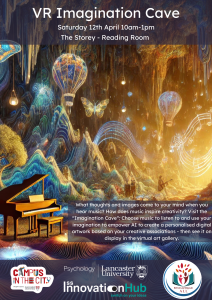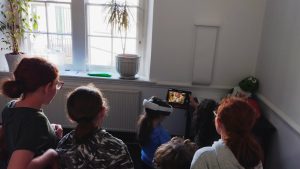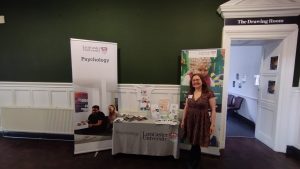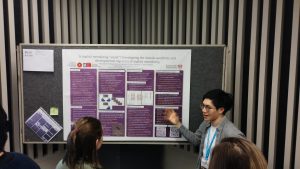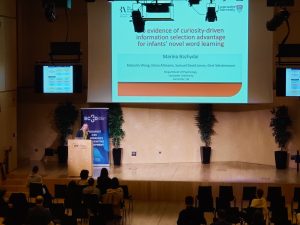Marina and Mathilde co-created and presented the Imagination Cave – a VR experience public engagement exhibit presented at the Lancaster Music Festival in collaboration with the ISS Innovation Hub. Over 50 members of the public visited the exhibit during the event.
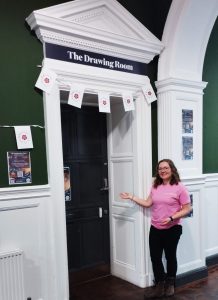
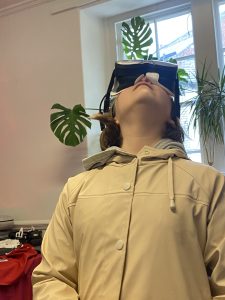
The experience was inspired by research on curiosity, imagination and creativity, in particular during engagement with the arts.
We invited people to listen to a piece of music and then describe an image inspired by that music. This empowered AI to create personalised digital artworks based on their creative associations. Here are a few examples:
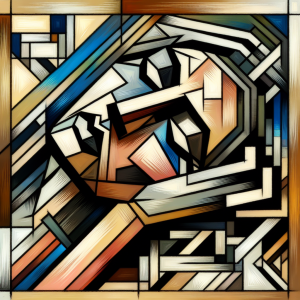
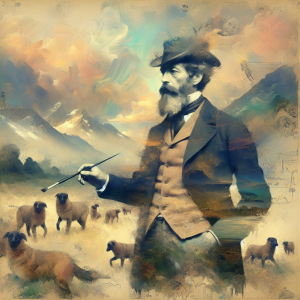
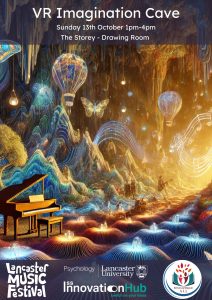
Imagination Cave VR simulation is an innovative tool that will enable psychological lab-based research into several fascinating cognitive processes in children and adults, such as imagination, curiosity, wonder, insight, and creativity. Primarily, we aim to use it as a way to put people in a state of wonder or to spark their curiosity, then ask them to use their imagination, and finally measure their creativity afterwards, along with their assessment of AI-generated artworks. This will allow us to gain empirical evidence for the proposed link between curiosity, wonder and creativity, a topic currently under-investigated in psychological research. The tool also allows drawing connections between different art forms, such as music, visual and literary arts, so that we can investigate how these may uniquely relate to these psychological processes. Finally, with the inclusion of the AI-generated artwork, this tool will be uniquely positioned to study human creativity and imagination in the context of generative AI creative outputs.

